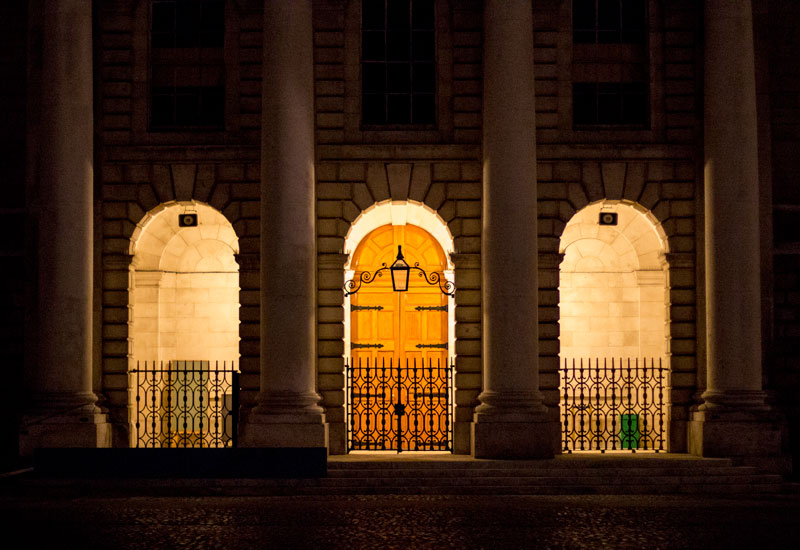Students could be entitled to defer upcoming Christmas exams without providing a reason if assessment mitigation measures are approved by Trinity this week.
Trinity’s Continuity of Student Learning and Activities working group (COLSAG) group tabled a memo today that included a proposed re-introduction of the automatic right to deferral – which was brought in as a temporary measure due to the pandemic – a full return to online exams, if the government imposes a nationwide lockdown at exam time.
The proposals will be brought to the Trinity Living With COVID group this week, and, if approved, will be signed off by the provost’s office
In a press statement this evening, Trinity College Dublin Students’ Union (TCDSU) Education Officer Bev Genockey said: “Students need clear communication about the supports that are available to them during the exam period, and the College’s contingency plans in light of concerning increases in COVID-19 case numbers.”
Genockey said that while the union welcomed today’s memo, “these plans should have been discussed a long time ago”.
“Throughout the semester, TCDSU has consistently asked for clarification on what end of term assessments will look like. We are disappointed to see that upon the release of exam timetables last Friday, students have still not received this clarification from Trinity.”
Genockey added that any mitigation measures implemented must be communicated to students promptly.
The Graduate Students’ Union (GSU) issued a joint statement this evening with lobby group Students4Change which called on the Irish Universities Association (IUA) to reconsider holding any in person exams due to the rising case numbers in Ireland.
GSU President Gisèle Scanlon said in the statement: “We are concerned for students who are sick or might have COVID, or will be awaiting test results that through no fault of their own they will have to choose an alternative option other than in person. There’s an equality issue if some students sit exams in different circumstances and we need to negotiate a good option for all of our students. Whether that is to repeat or defer free of charge to February, we’re asking for a solution so that postgraduates don’t feel that they have lost something, like so many students last year.”
The joint statement said that the time allocated for real-time online exams should be extended to 24-72 hours to accommodate students who lack stable broadband connections or private spaces to to work in.
They suggested that if in-person exams do take place that College should provide a private bus service to students who live outside of Dublin so that they can avoid the possibility of catching COVID-19 on public transport.
They also called for exams to be done on computers to facilitate easier marking of exams by postgraduate students.
Mitigation measures for exams were introduced in April 2020 in response to lockdown in Ireland, and were retained for the 2020/21 academic year due to the continuing effects of the pandemic on teaching. Students were able to defer their exams or essays due as part of the assessment period without providing a reason, and third and fourth years were allowed to resit exams if they counted towards their final degree mark, even if they achieved a passing mark in the assessment.
Earlier this week, The University Times reported that individual schools can move online for a “circuit breaker” period if cases are particularly high in that school.
Trinity’s Vice Provost Orla Sheils told this newspaper in an interview: “I think it’s clear at the moment that, as spikes occur or smaller outbreaks occur in different areas, some courses or some modules may have to flip and may have to go online for a short period but with the intention of coming back as quickly as possible.”
As Trinity’s vice provost and chief academic officer, Sheils is responsible for academic and research policy, as well as strategic planning.
When asked about the possibility of a return to more online teaching, Sheils said: “I think we need to have it on our radar. That’s not a decision we would make as Trinity. That is a decision that government will and would make based on NPHET’s input. We cannot pretend numbers aren’t escalating.”
With high vaccine uptake among young people, face-to-face teaching has been maximised this semester. A full return to in-person classes in the second semester is still on the table, but Shiels says that “we need to be adaptable and responsive in Trinity to any direction that’s given to us”.
“At the moment, we have opened as fully as we can”, said Sheils, adding: “We need to be sensible.”







